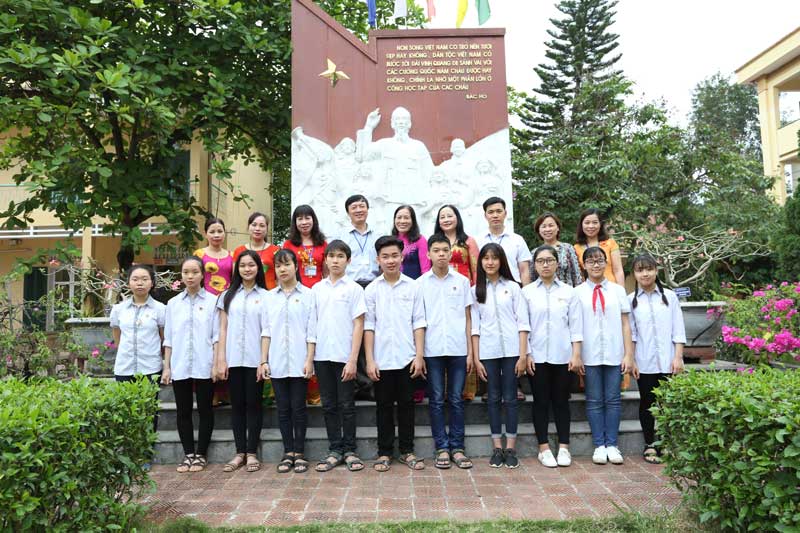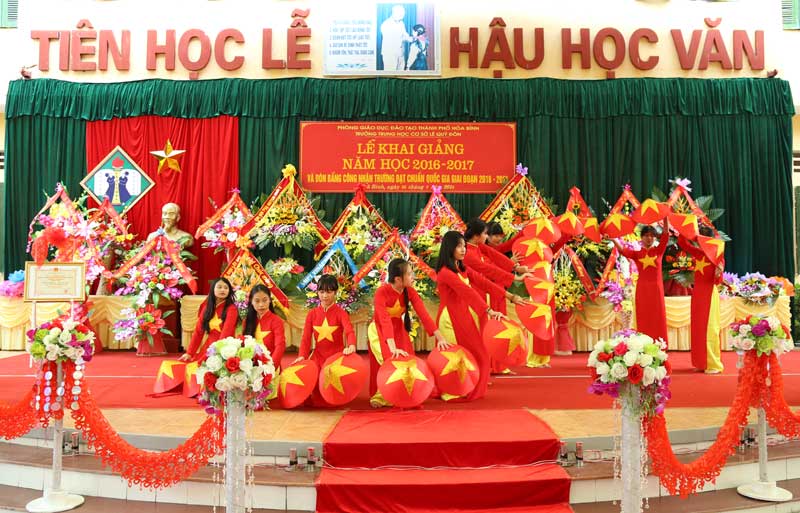


After 45 years of construction and
development, Le Quy Don Secondary School has been honored many times with a lot
of achievements in many fields. The school’s Party Branch has won the title of
"The clean and strong Party Branch” for many years. There have been a lot of
excellent pupils at national, provincial and city levels. In the entrance exams
to Hoang Van Thu gifted high school or Hoa Binh ethnic boarding high school, Le
Quy Don School has had many pupils who are in the top grade of specialized
subjects. The teachers are supported to be trained and fostered for improving
their professional skills and implementing well the movement "Every teacher is
a good example of morality, self-study and creativity”. Many teachers have won
high prizes in the city and provincial competitions of good teachers, good
managers, and good group leaders. In addition, about the aspects of sports and
physical training, art performances, arts, Union tasks, Youth tasks, the school
has actively participated in the movements and has gained many encouraging
achievements.

The excellent
teachers and pupils with high prizes in the provincial and national
competitions during the school year of 2016-2017 of Le Quy Don Secondary
School.
Only in the school year of 2016-2017,
teachers and pupils at Le Quy Don Secondary
School are proud to continue their achievements in two sides of education. The
school has over 99% of pupils who are ranked at good and very good conduct
levels, no pupil is at weak conduct level; 32,8% of the pupils are good
academic pupils, 48,7% are quite good, there is no weak pupil. About
comprehensive education, through many competitions, the pupils at this school
have won 157 prizes at school level of Grade 6th, 7th, 8thwith the subjects of Math, Literature, English, Physics and Chemistry; it won
220 city-level prizes; 41 provincial awards; 9 national and regional
championships, of which the first, second and third prizes have increased
compared to the school year of 2015 – 2016.
Over the years of education career,
Le Quy Don Secondary School has honored and been proud to receive the noble
titles and awards, such as the Labor Medal of the third class, the Certificate
of Merit from the Prime Minister; The provincial " Top flag of Secondary
Schools” about teaching and learning achievements. It is also recognized as a
national standard school and continuously awarded by Chairman of Hoa Binh city
People’s Council as "Good teaching – good learning” school. The Team of Ho Chi
Minh Pioneers has been recognized as "The strong provincial Team” for many
years and been awarded the Certificate of Merits from The Central Union.
On the way of getting a lot of
proud achievements, the school always remembers the attention and direction
from the Party and authorities, Department of Education and Training and Hoa
Binh City Board of Education and Training.

The school always
focuses on organizing cultural and artistic activities to create useful and
joyful playground for pupils.
It is astonishing that the school's
history still marks the footsteps of managing teachers with great concern for
building this school. Teachers are the captains with important roles to convey
the knowledge to many pupil generations for a bright future which are
associated with the name of Le Quy Don Secondary School today.
From this school, many pupil
generations have been wrapped with the knowledge wings by the teachers’ love to
go everywhere. Until now, the bright and innocent pupils have grown up and got
different positions of engineers, doctors, economic managers who contribute to
the development of Hoa Binh homeland and the country by their virtues.